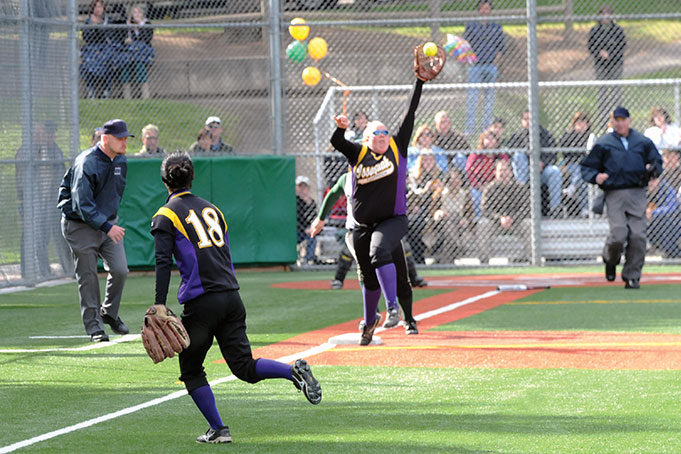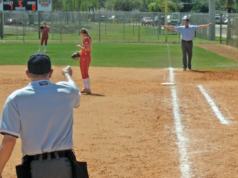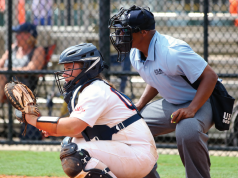We often think we are communicating well with our partners, when we really aren’t. Good communication is the key for a successful umpiring team.
The most basic form of communication is simply oral communication. That often means communicating your location on the field. “I’ve got third!” or, “You’ve got the runner!” are simple but effective communications. Their simplicity should not diminish their importance.
Have you ever found yourself at third base preparing to make a call and felt the presence of another umpire possibly making a call at the same time? It is vitally important to know where your partner is and what your partner believes his or her primary responsibility is on every play. Though you may have discussed coverage before the game, using verbal communication is critical. In the heat of a developing play, an umpire can lapse and make a call that really isn’t that umpire’s responsibility. If you are talking, you’ll know who is going to call the play.
OK, we’ve covered the basic (and honestly, the most important) communication technique. So let’s move on to the more “touchy” situations that occur during a game that require excellent communication. A crew recently shared a real-life example of the importance of discussing a situation rather than just pointing at each other.
Have you seen those types of umpires? Some umpires simply point in the direction of their partner and expect their partner to miraculously know the meaning of the point. I’ve seen and experienced the “mime” umpires in action and I’m never at ease with them.
The crew said there was a slight bobble on a throw to first base as the first baseman stretched to catch the ball. On the safe call, the defensive team’s reaction was spontaneous and vociferous. Realizing something was likely amiss, the base umpire pointed to the plate umpire and the plate umpire raised his fist and called, “That’s an out!” More grumbling followed along with the comment, “Both of you missed that one!” But the game continued.
After the game the crew members learned of their poor communication. They thought they had done as they had been trained: “When in doubt, get help from your partner and strive to get the call right.” Well, the base umpire said to the plate umpire, “I wasn’t sure if the fielder bobbled the ball so that is why I thought I should come to you to make the call.” To that, the plate umpire replied, “I thought you wanted to know if his foot was on the bag when he stretched out. That’s why I called him out.” Oops!
The first mistake was just pointing instead of also verbalizing. But the biggest mistake was the plate umpire automatically making the out call. If they had agreed that the umpire making the call would be the one to stay with the call or change it based on the information provided by the other official, the plate umpire couldn’t have called the batter-runner out or safe. The officials would have had to talk to know what the base umpire was requesting.
Even though I’ve worked with my regular “partner” for more than 10 years, I’ve learned the importance of asking for clarification, or asking for a specific answer to a specific question. Sometimes, when it is a really difficult situation, like a catch/no-catch, I’ll ask a more open-ended question.
I might inquire, “What did you see on that play?” Had the base umpire vocalized, “Did he have control of the ball?” or, “Did he bobble the ball?” the crew could have made the correct call. You simply can’t depend on one umpire reading another’s mind.
I had a situation where an unfamiliar partner asked, “What have you got?” I responded, “Do you want to know if he had control of the ball?” That way the dialogue could continue with increased probability of getting the call right.
Are you communicating with your partner? If you aren’t talking, you aren’t communicating. After all, I don’t know of any mind readers on the field.
What's Your Call? Leave a Comment:
Note: This article is archival in nature. Rules, interpretations, mechanics, philosophies and other information may or may not be correct for the current year.
This article is the copyright of ©Referee Enterprises, Inc., and may not be republished in whole or in part online, in print or in any capacity without expressed written permission from Referee. The article is made available for educational use by individuals.


















